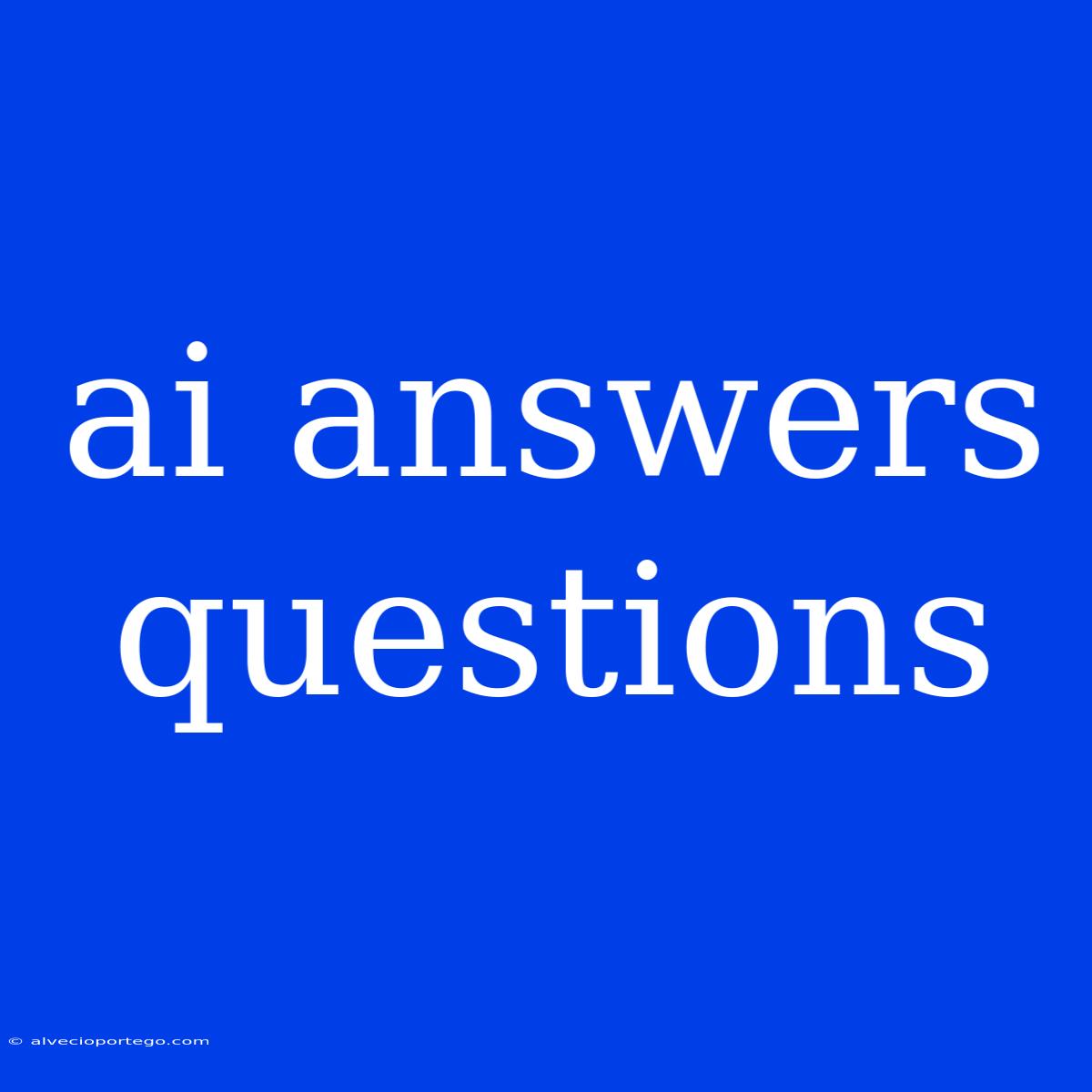AI Answers Questions: The Rise of Conversational AI and its Impact
The world is changing rapidly, and artificial intelligence (AI) is at the forefront of this transformation. One of the most exciting developments in AI is the ability of machines to understand and respond to human language, enabling them to answer questions in a way that feels natural and intuitive.
This article explores the growing field of AI-powered question answering, examining its capabilities, limitations, and potential impact on various industries.
How Does AI Answer Questions?
The process of AI answering questions involves several key components:
- Natural Language Processing (NLP): NLP allows AI systems to understand the nuances of human language, parsing sentences, identifying keywords, and extracting meaning.
- Knowledge Representation: This involves storing and organizing vast amounts of information in a way that AI can readily access and process.
- Reasoning and Inference: AI uses these abilities to connect different pieces of information, draw conclusions, and provide relevant answers to user queries.
These components work together to enable AI systems to:
- Comprehend the question: Identify the user's intent and the specific information they seek.
- Retrieve relevant information: Access and process data from various sources, including databases, text files, and the internet.
- Generate a comprehensive response: Synthesize information and provide clear and accurate answers.
Types of AI Question Answering Systems
There are various types of AI question answering systems, each with specific strengths:
1. Factoid Question Answering: These systems focus on answering simple, factual questions with short, precise answers. For example, "What is the capital of France?"
2. Complex Question Answering: These systems handle more challenging questions requiring reasoning and understanding context. For example, "Why did the stock market crash in 2008?"
3. Open-Domain Question Answering: These systems can answer questions about any topic and draw information from a wide range of sources. They often utilize vast knowledge bases and search engines.
4. Closed-Domain Question Answering: These systems focus on a specific domain, such as medicine or finance, and are trained on data from that domain.
Impact and Applications of AI Question Answering
AI-powered question answering has the potential to revolutionize various industries:
1. Customer Service: Chatbots and virtual assistants can answer customer inquiries quickly and efficiently, improving customer satisfaction and reducing wait times.
2. Education: AI-powered learning platforms can provide personalized feedback and answer student questions in real-time, enhancing the learning experience.
3. Research and Development: Scientists and researchers can use AI to quickly find relevant information and gain insights from large datasets.
4. Healthcare: AI can be used to analyze patient data, diagnose diseases, and provide personalized treatment recommendations.
5. Information Retrieval: AI can be used to search and retrieve information from vast amounts of data, making it easier to find specific information.
Challenges and Limitations
Despite its impressive potential, AI question answering still faces several challenges:
- Bias and misinformation: AI systems can reflect biases present in the data they are trained on. It is crucial to address these biases and ensure ethical development of AI systems.
- Understanding context and ambiguity: AI struggles to understand nuanced language, sarcasm, and figurative language.
- Handling complex reasoning: AI systems still face difficulty in handling complex reasoning tasks that require deep understanding of a subject.
The Future of AI Question Answering
As AI technology continues to evolve, we can expect to see significant improvements in AI question answering systems. Advancements in NLP, knowledge representation, and machine learning will enable these systems to handle more complex questions, understand context more effectively, and provide even more accurate and relevant responses.
AI question answering is becoming an increasingly integral part of our digital world, with the potential to transform how we access and understand information. As we continue to develop and refine this technology, it will undoubtedly play a crucial role in shaping the future of communication and interaction with computers.

